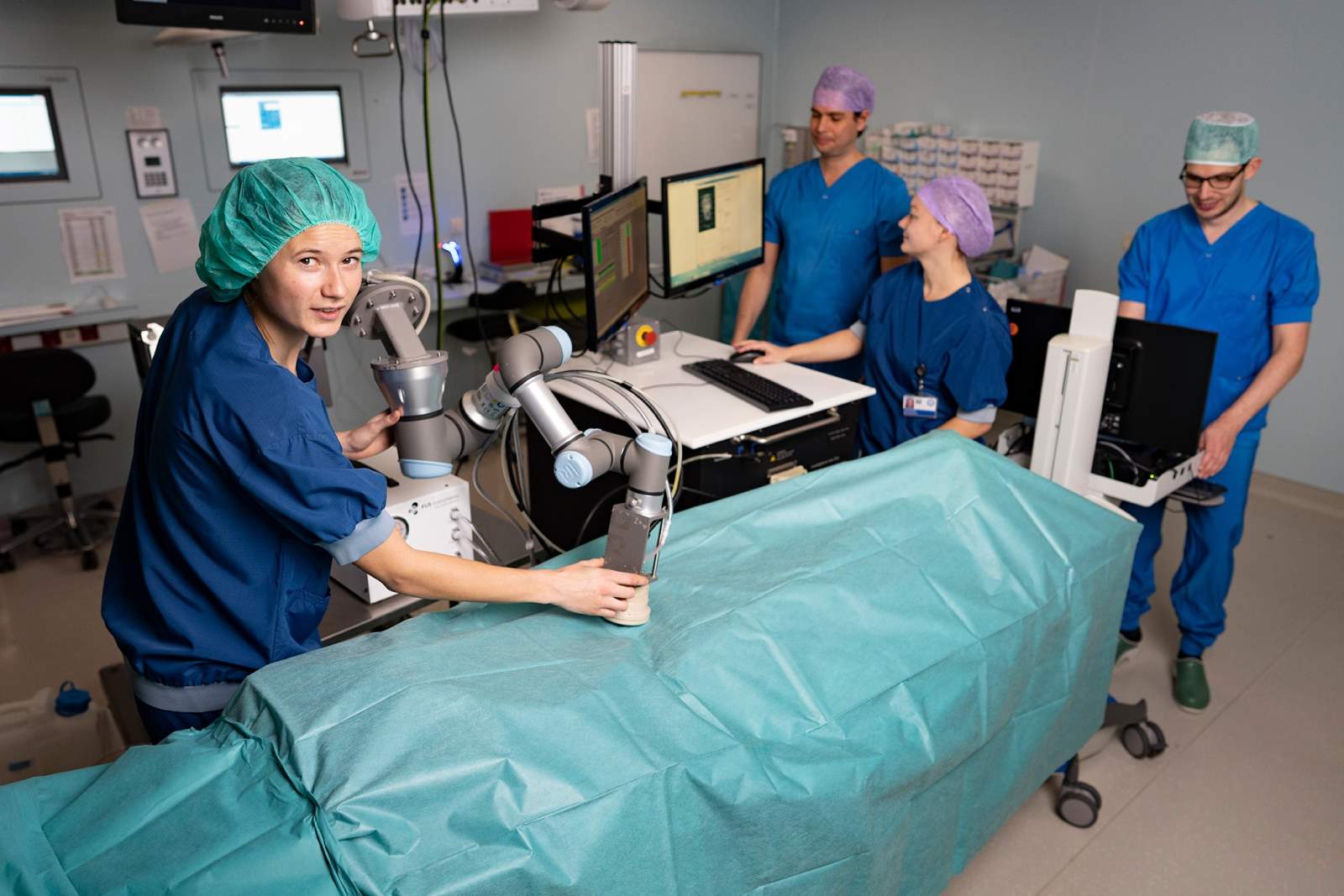Unique research
At UMC Utrecht, we conduct unique and pioneering research. Some examples of this in 2021 are:
Brain model could bring relief for epilepsy patients
To stop epilepsy attacks in patients with epilepsy, a treatment where the smallest possible part of the brain is removed, could provide a solution. The first step is to locate the probable focus of the epilepsy. If that part of the brain is expendable, it will be removed. Very often with success. But sometimes the focus is removed, yet the epilepsy remains. Research based on mathematical models offer surprising insights (published in Epilepsia ). It shows that the brain works differently from what was thought. With this model, we can simulate what happens during an attack. Subsidy provider ZonMw gave this UMC Utrecht research a Parel (‘Pearl') award in 2021. The researchers are still working on methods to improve the mathematical models and make them practically useful.
Less strenuous treatment for arterial occlusion
To treat patients with an occluded artery in the groin area in a less strenuous manner and with fewer risks, UMC Utrecht is conducting research on treatment using sound waves (scientific publication on PubMed ). By targeting high-frequency sound waves at an occlusion (plaque) in the artery, it can be broken down layer by layer. That is the theory behind Hifu treatment (High-Intensity Focused Ultrasound). In 2021 we treated the first patients with arterial occlusion in the groin using this method. The results are encouraging. Following this safety trial, where we want to demonstrate the safety of the treatment, an effectiveness study will be conducted to demonstrate scientifically that the treatment is effective. Once this has been demonstrated scientifically, the next step will be the treatment of arterial occlusion in other parts of the body. For example in the thigh, lower leg, or neck.

Treatment of patients with COVID-19
The international REMAP-CAP study , an ongoing global study to improve pneumonia treatment, is coordinated in Europe by UMC Utrecht. The study is set up in such a way that the effectiveness of drugs can be tested rapidly during a pandemic. In 2020, the REMAP-CAP study tested several already existing drugs in the treatment of COVID-19 patients, with worthwhile results. In 2021 as well, the REMAP-CAP study delivered very useful information for the treatment of patients with COVID-19.
It appeared for instance from the REMAP-CAP study that treatment with high doses of anticoagulants is effective for patients with COVID-19 who are hospitalized, but not if they are in IC. This was published in the New England Journal of Medicine . The treatment can prevent these patients from becoming seriously ill, and can also improve the recovery of the patients. Treating seriously ill COVID-19 patients with drugs that are generally used for rheumatoid arthritis also appears to increase the patient’s chances on survival . A publication on this study also appeared in the New England Journal of Medicine .
Treating seriously ill COVID-19 patients in IC with plasma antibodies brings no improvement (published in JAMA ). Furthermore, the use of hydroxychloroquine seems to worsen the condition of critically ill COVID-19 patients (published in Intensive Care Medicine ).
Treatment of cystic fibrosis
Cystic fibrosis is a serious hereditary condition that is caused by one or more mutations in the CFTR gene. Current medication only helps with some of the known mutations. For other mutations, directly repairing errors in the gene could provide a solution in the future. At UMC Utrecht, a study was conducted in 2021 to improve the prime editing of DNA codes. Improving prime editing creates more possibilities to correct the mutations that cause cystic fibrosis. The functionality and safety of these improved prime-editors are tested in intestine organoids that are made from the intestinal cells of cystic-fibrosis patients. Our researchers are also looking for a way to estimate where the best place is to correct the genome. For this, they have developed a test system. To make these techniques available as quickly as possible for cystic-fibrosis patients, researchers at UMC Utrecht have received an ERC Grant for follow-up research . In March 2022, the results of the 2021 study were published in Nature Communications .